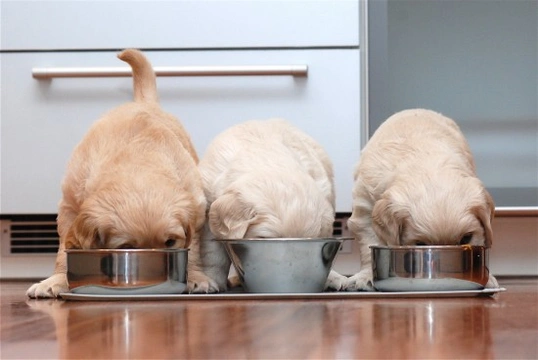
How to feed your dog a diet that produces a low waste output
Cleaning up doggy doo is something that all dog owners have to get to grips with, but that no one actually enjoys! Cleaning up after your dog can be a particular challenge if your dog poops often, or produces copious quantities of the brown stuff, something that many dog owners are all too familiar with! While how much waste output your dog produces will depend on how much they are fed, which is in turn related to the size of your dog, exactly what they are fed too can affect how much waste a dog produces like for like compared to a different diet fed in the same quantities.
If you are interested in finding out if there is a way to feed your dog a healthy, nutritious diet without generating a lot of excess waste as a result of this, read on to find out about the feeding factors that affect how much your dog will poop.
Quality food
The better the quality of your dog’s diet, the more benefit they will gain from the food that they eat, and the more of the food they will be able to utilise as fuel and energy rather than simply processing it and turning it back out the other end!
However, picking a genuinely high quality food can be a challenge, as top prices and fancy packaging do not necessarily mean a good quality food. While it is certainly true that foods at the bottom end of the price scale are more likely to contain low quality ingredients and lots of fillers, it is perfectly possible to buy a premium, high quality dog food at the middle range of the price spectrum without needing to pay top dollar.
Dogs whose diet is considered to be optimal will use their food for energy and growth, rather than depositing it back out in the garden! Dog food ingredient listings are laid out with the largest quantity ingredient coming first, then the next largest and so on, so look for a food that has protein (such as meats) first on the list.
Reduce fillers
The term “fillers” describes bulking agents used to make food go further and reduce cost, and these fillers are almost always cereal-based. While cereal fillers are not in any way harmful to your dog (unless they are allergic to them) ingredients such as soy, corn meal, wheat, and rice are not necessary within the canine diet. Dogs do not digest grains such as these particularly easily, as they are not designed to eat them, so foods that are rich in grains will tend to mean that your dog produces more waste than if they eat a low grain or grain free food.
Wet, dry, or meat?
The diet most likely to produce a minimal amount of waste from your dog is the raw meaty bones diet, or BARF diet, as it is sometimes called. This is because the raw meat and vegetable matter that forms the diet is highly digestible and eminently well suited to the digestive system of dogs, allowing them to convert more of the food into useful energy and less into waste. However, it is tricky, expensive and time consuming to feed a BARF diet correctly, and most dog owners prefer to feed a ready to go, complete diet.
When it comes down to the question of wet or dry food, your first consideration should be the quality of the food rather than its texture, and a good quality wet food is more valuable than a poor quality dry food.
However, like for like, feeding a quality complete dry diet will mean less dog waste produced than feeding a wet diet to the same dog, and also, dry food tends to be less pricey than wet, and it is more concentrated. Many dog owners feed a combination of wet and dry food, which will produce a medium amount of waste at the other end!
Digestibility
The digestibility of the dog food is another factor to consider, and many different elements contribute to how digestible any given food is. Digestibility is given as a percentage, which indicates the percentage of the food that is considered to be digestible as useful energy, and what amount will pass out as waste.
A digestibility figure of 80% or more indicates a highly digestible, good quality food, and that is what you should be aiming for with your own dog’s food.
Quantity
Finally, it is surely obvious that how much you feed your dog will greatly contribute to how much waste they will produce as well!
Different dog foods come with different feeding guidelines in terms of how much of any given food the dog should be given, and if you are changing your dog’s diet, you should check the feeding guidelines on the new food rather than assuming that it will be the same as for the old food.
Over feeding your dog can of course lead to obesity and weight problems, but it will also lead to more poop output too!



